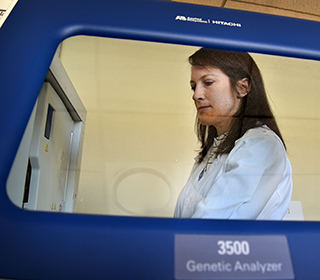Latest News Archive
Please select Category, Year, and then Month to display items
12 October 2020
|
Story Dr Cindé Greyling
|
Photo Supplied
 Exercise and nutrition can work wonders for your mental health – you don’t even have to ‘feel like’ or ‘enjoy’ moving around and eating well for it to work – it does its thing anyway.
Exercise and nutrition can work wonders for your mental health – you don’t even have to ‘feel like’ or ‘enjoy’ moving around and eating well for it to work – it does its thing anyway.
Nowadays, people talk about mental health like it is the common cold – which is good! But do you know what it really means? Being mentally healthy does not only refer to the absence of a mental illness but includes your emotional and social well-being. One would almost want to add physical well-being too, since a healthy body does indeed support a healthy mind. However, since so many people consider themselves ‘mental health experts’, some myths have been sold as truths.
Myth #1 – You are doomed.
Nope. Never. You are never doomed. There is always help. Mental-health therapies range from self-help, talk therapy, medication, to hospitalisation in some cases. Somewhere on this spectrum of treatments, there will be something that works for you. But you must be willing to get the help and do the work. For starters, exercise and nutrition can work wonders – you do not even have to ‘feel like’ or ‘enjoy’ moving around and eating well for it to work – it does its thing anyway.
Myth #2 – It won’t affect you.
It may. Research suggests that one in five people may suffer from a mental illness at some point in their lives. Being well now does not mean that it will stay that way. Biological and environmental factors both impact your mental health. Hopefully not, but at some point, you may experience an event that affects your mental health.
To remain integrated in a community is always beneficial
for anyone suffering from a mental or physical condition.
Myth #3 – Someone struggling with mental health must be left alone.
Hardly! To remain integrated in a community is always beneficial for anyone suffering from a mental or physical condition. You do not need to fix them, but to remain a friend. Continue to invite them, even if they decline. Do not judge, and do not try to understand. Just stay around.
Go and be kind to yourself, and to those around you.
New Division of Virology to deliver crucial services for HIV diagnosis and resistance testing
2015-12-14

The establishment of a Division of Virology within the Department of Medical Microbiology, under the joint auspices of the UFS and the National Health Laboratory Service (NHLS), reflects the continued growth within Virology. Dr Dominique Goedhals, Head of the Division, says the division will also provide training of undergraduate medical students, medical technologists and technicians, and registrars. |
The newly established Division of Virology at the University of the Free State will be one of only five laboratories in the country to be involved in crucial diagnostic and testing services for HIV viral load monitoring, early infant diagnosis, and HIV resistance testing.
The Virology Diagnostic Laboratory serves as the reference laboratory for all HIV National Priority Programme samples for the Free State and Northern Cape provinces.
Medical staff at the laboratory will provide a 24-hour consultative service, as well as outreach programmes to district laboratories in the Free State and Northern Cape where pathologists are not available.
Dr Dominique Goedhals, Head of the Division of Virology, says this division, under the joint auspices of the UFS and the National Health Laboratory Service (NHLS), reflects the continued growth within Virology.
The division will not only deliver this critical diagnostic service, but will also focus on training and teaching, as well as research.
Teaching and training activities include teaching of undergraduate medical students, medical technologists and technicians, and registrars. The postgraduate science programme has a high output of honours, master’s and doctoral students in Virology. The intern medical scientist programme is also active, with five interns having successfully submitted their portfolios since the programme was implemented in 2010.
Research activities under the Head of Research, Prof Felicity Burt, have also expanded and continue to show increases in publication output and acquisition of grant funding. Established research groups within the Division of Virology focus on vector-borne and zoonotic viruses, human papilloma viruses (HPV), and human immunodeficiency virus (HIV), as well as work with a number of international collaborators.